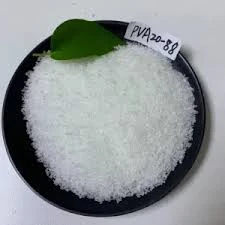HPMC for Detergent A Versatile Solution for Enhanced Cleaning Performance
Hydroxypropyl Methylcellulose (HPMC) has gained significant attention in the formulation of detergents and cleaning products due to its multifunctional properties and effectiveness. As a cellulose derivative, HPMC is recognized for its thickening, binding, and film-forming abilities, making it an ideal ingredient in various cleaning formulations. This article explores the benefits of using HPMC in detergents and highlights its applications in both household and industrial cleaning products.
Enhanced Cleaning Efficiency
One of the primary functions of a detergent is to lift and remove dirt and stains from surfaces. HPMC plays a crucial role in enhancing the cleaning efficiency of these products. It improves the viscosity of the detergent solution, which allows it to adhere better to surfaces, ensuring that dirt particles are lifted away more effectively. This improved interaction not only facilitates the cleaning process but also reduces the amount of product needed to achieve the desired results, making it a cost-effective solution for manufacturers and consumers alike.
Stabilization of Formulations
HPMC acts as an effective stabilizer in liquid detergents, preventing sedimentation and separation of ingredients over time. This stability is vital for ensuring that the detergent maintains its performance throughout its shelf life. By incorporating HPMC, manufacturers can produce detergents with a consistent texture and performance, which enhances consumer satisfaction. The ability of HPMC to provide stability also means that it can be used in a variety of cleaning applications, from laundry detergents to dishwashing liquids.
Biodegradability and Eco-Friendliness
hpmc for detergent

With an increasing focus on sustainability and environmental impact, HPMC stands out as an eco-friendly ingredient. It is biodegradable, which means that products containing HPMC can break down naturally in the environment, minimizing pollution. As consumers become more environmentally conscious, the demand for biodegradable and non-toxic cleaning products is on the rise. By incorporating HPMC in formulations, producers can align their products with the growing trend towards sustainability while still delivering high-performance cleaning solutions.
Versatility in Applications
HPMC's versatility extends beyond just liquid detergents. It can be used in powder detergents and even in specialty cleaning products such as automotive cleaners, surface cleaners, and even cosmetics. In powder formulations, HPMC can act as an agglomerating agent, improving the flow and preventing caking during storage. For specialized cleaning applications, HPMC can enhance the performance of cleaners by ensuring better adherence to surfaces and increasing the time the product stays in contact with dirt and stains.
Compatibility with Other Ingredients
The compatibility of HPMC with a wide range of other ingredients allows formulators to develop complex cleaning solutions that meet specific consumer needs. It can be easily integrated with surfactants, enzymes, and other performance-enhancing agents, optimizing the overall effectiveness of the detergent. This compatibility also facilitates the creation of multi-functional products that combine cleaning, stain removal, and fabric care, further broadening the appeal of HPMC in detergent formulations.
Conclusion
In conclusion, Hydroxypropyl Methylcellulose offers a multitude of advantages for the formulation of detergents and cleaning products. Its ability to enhance cleaning efficiency, stabilize formulations, biodegradability, versatility, and compatibility with other ingredients make it an essential component in modern cleaning technology. As the demand for high-performing, eco-friendly, and versatile cleaning products continues to grow, HPMC is poised to play a pivotal role in shaping the future of the detergent industry. Manufacturers that prioritize the incorporation of HPMC into their formulations will likely see improved product performance and heightened consumer satisfaction, enabling them to thrive in a competitive market.
-
Rdp Powder: Key Considerations for Wholesalers in the Building Materials IndustryNewsJul.08,2025
-
Key Considerations for Wholesalers: Navigating the World of Hpmc - Based ProductsNewsJul.08,2025
-
Hpmc Detergent: Key Considerations for WholesalersNewsJul.08,2025
-
Key Considerations for Wholesalers: China Hpmc For Tile Adhesive, Coating Additives, Concrete Additives, and MoreNewsJul.08,2025
-
Crucial Considerations for Wholesalers: Navigating the World of Construction MaterialsNewsJul.08,2025
-
Key Considerations for Wholesalers Sourcing Additive For Cement, Additive For Concrete, Additive For Putty from Additive Manufacturer Shijiazhuang Gaocheng District Yongfeng Cellulose Co., Ltd.NewsJul.08,2025




